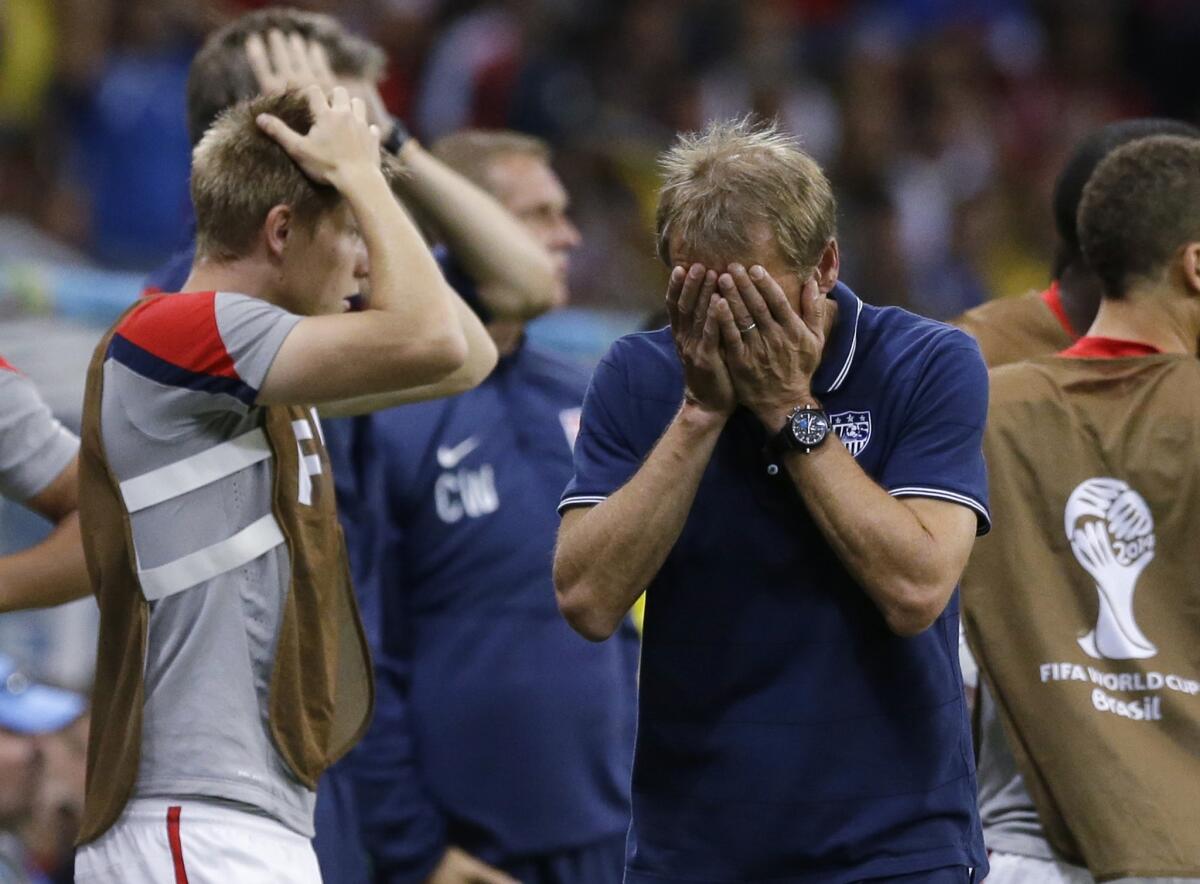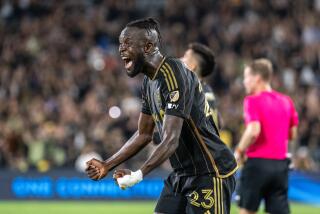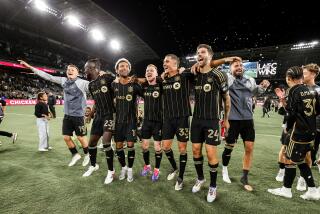Column: Jurgen Klinsmann’s firing was a long time coming

Jurgen Klinsmann never realized his bold ambition of introducing an attacking mentality to the U.S. national team, but that’s not why he was fired Monday.
He was fired because he was incompetent.
If U.S. Soccer was certain Klinsmann would get the team back to the World Cup, he would still be the coach. The federation obviously wasn’t convinced.
This wasn’t only about the recent defeats in World Cup qualifying by Mexico and Costa Rica. This was about the last couple of years.
Erratic performances raised serious questions about whether the U.S. could beat the likes of Panama, Honduras, and Trinidad and Tobago. That’s where U.S. Soccer had to draw the line.
Over the last two decades, the U.S. had established itself as one of the CONCACAF region’s two dominant powers, alongside Mexico. The bare-minimum expectation for the coach was to protect this position, which would guarantee a passage to the World Cup, as well as lucrative regional championship games against Mexico.
This order was threatened by Klinsmann. The Americans didn’t reach the finals of the CONCACAF Gold Cup last year, falling to Jamaica in the semifinals. They nearly cost themselves a place in the final stage of World Cup qualifying by dropping a game in Guatemala in March.
Valid arguments can be made about how the U.S. doesn’t have the talent pool to compete against the best in the world. The same defense can’t be used to explain away the disappointing performances within the region. The Americans should be crushing Jamaica and Guatemala. They used to.
Taking down regional lightweights shouldn’t be this hard. Really, it’s pretty simple. Be organized on defense. Play hard. Take what the other team gives you. Collect three points.
It’s little wonder U.S. Soccer is expected to turn to Bruce Arena to replace Klinsmann. Arena, who previously coached the U.S. at two World Cups, won’t make any of the kinds of promises Klinsmann made. If anything, his teams will bore impartial viewers. But he will be sensible and should do what is necessary to get results.
Of course, this isn’t exciting. This will effectively take the U.S. back to where it was under Arena and his successor, Bob Bradley, before Klinsmann took over.
It was this absence of excitement that opened the door for Klinsmann in the first place. What is curious is why anyone believed he could do what he said.
On his first day as coach, Klinsmann said he wanted the team’s style of play to reflect the nation’s culture. And how did he view American culture?
“Studying your culture and having an American wife and American kids, my understanding is that you don’t like to react to what other people do,” he said. “I think this is maybe a starting point. I think America never really waits and sees and leaves it up to other people to decide what is next.
“I think America always likes to decide on its own what is next. This guides maybe towards a more proactive style of play, where you would like to impose a little bit the game on your opponent instead of sitting back and waiting for what your opponent is doing and reacting to it.”
Except to play an attacking style, a team is required to have players capable of holding the ball and taking on defenders. The U.S. didn’t. It still doesn’t.
It’s true Barcelona’s style is a reflection of a club-wide philosophy. But that philosophy would be useless if the team didn’t have Lionel Messi and Andres Iniesta to express it.
Klinsmann always looked like a prisoner of his first-day proclamation. Never mind the public expectation he created. He was stuck between where he wanted his team to be and where it actually was. He would get a good result in a game, but then his desire to further improve the team led him to tinker. He used players in roles to which they were unaccustomed in a vain effort to get more offense out of certain positions.
The U.S. became a team without an identity. Soon, it became a team that couldn’t be counted on to dominate Central American and Caribbean competition.
That was unacceptable and that is why Klinsmann is now out of work.
Follow Dylan Hernandez on Twitter @dylanohernandez






